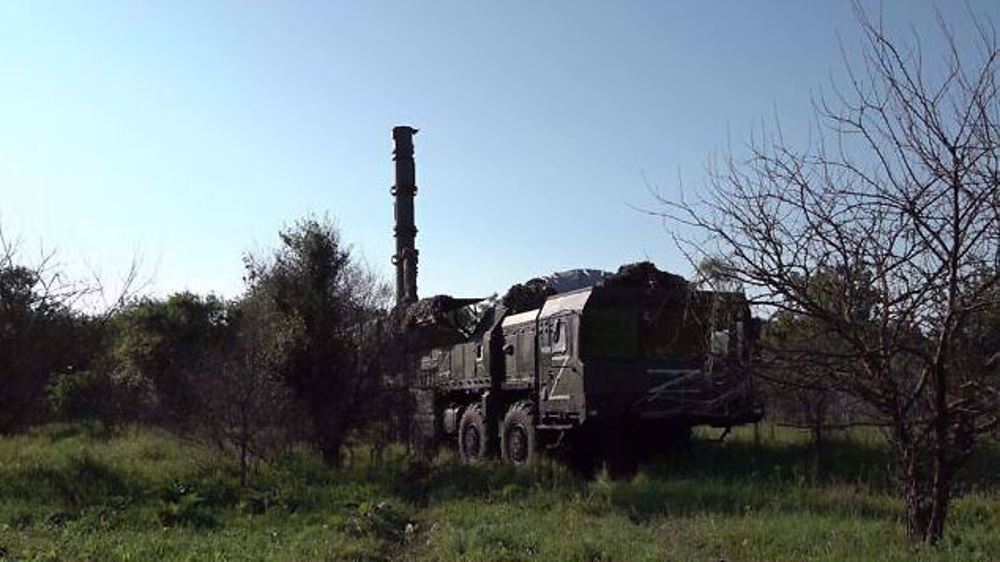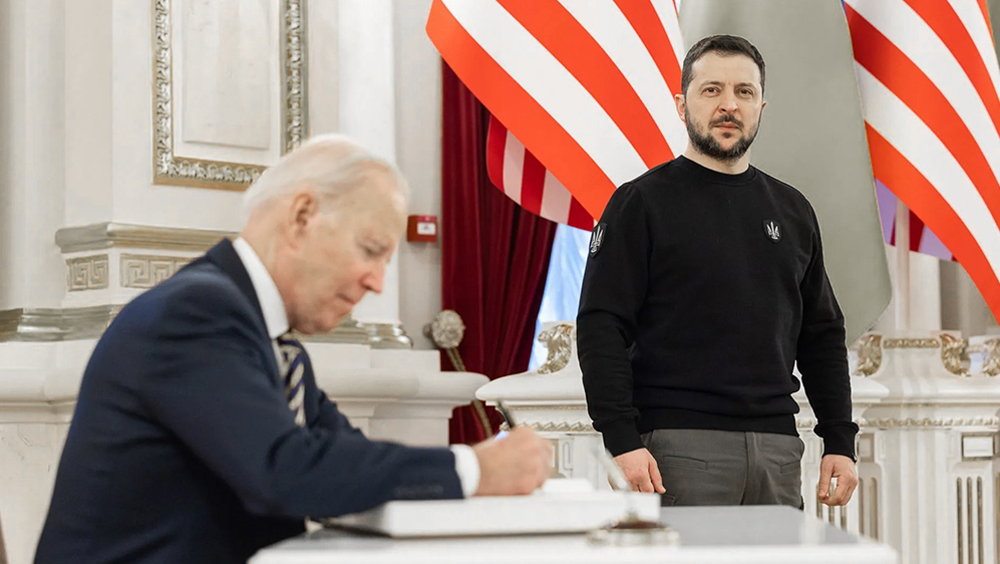NATO vows ‘measured’ response to Russia as INF falls apart
NATO’s Secretary-General Jens Stoltenberg says the alliance seeks to avoid a “new arms race” with Russia but will give a “measured” response to alleged risks posed by a Russian missile, as Washington and Moscow cancel a bilateral arms treaty.
Stoltenberg said on Friday that the 29-country alliance aimed not to deploy nuclear missiles on European soil.
His remarks came after US Secretary of State Mike Pompeo announced Washington’s formal withdrawal earlier in the day from the Intermediate-Range Nuclear Forces Treaty (INF). The US claims Russia breached the Cold War-era deal by developing a missile known as the 9M729.
Russia denies the accusation. In January, it publicized the missile’s specifications to prove that it was allowed under the INF, which had been signed toward the end of the Cold War, in 1987, by the then-US President Ronald Reagan and Soviet leader Mikhail Gorbachev.
Under the treaty, both sides were banned from creating ground-launched nuclear missiles with ranges from 500 to 5,500 kilometers. The pact also banned the sides from deploying short and intermediate-range land-based missiles in Europe.

In his Friday remarks, Stoltenberg echoed US concerns about the 9M729.
He said that the missile was able to hit European cities with only minutes of warning time and that “Russia bears sole responsibility for the demise of the [INF] Treaty.”
Despite that, he claimed the alliance — created during the Cold War with its primary goal being the containment of Russia — did not seek to escalate.
“We will not mirror what Russia does,” the NATO chief said at a news conference in Brussels. “We don’t want a new arms race. And we have no intention to deploy new land-based nuclear missiles in Europe.”
But, he said, the alliance “will respond in a measured and responsible way to the significant risks posed by the Russian 9M729 missile to Allied security.”
Shortly before Pompeo’s announcement, the Russian Foreign Ministry in Moscow said the deal had been terminated “at the initiative of the US.”
Moscow initially suspended its participation in the INF on February 2, a day after Pompeo announced that Washington was halting its own implementation of the deal.
VIDEO | 85% of Yemeni displaced people face daily hunger crisis
US House passes bill targeting charities and pro-Palestine groups
VIDEO | Supporting Gaza genocide
Hezbollah attacks Israeli forces after Lebanese homes blown up
World leaders, states hail ICC arrest warrants for Netanyahu, Gallant
MP: US accountable for possible Israeli 'foolishness' to attack Iraq
VIDEO | Israeli policies strangle Palestinian agriculture, economy
Iran's president offers condolences to Pakistan over terrorist attack












 This makes it easy to access the Press TV website
This makes it easy to access the Press TV website